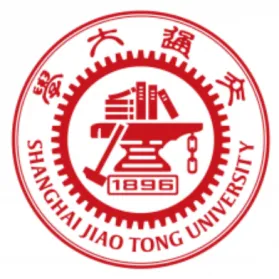China is the world’s second largest economy, home to commercial hubs such as Shanghai where industries from finance, to trade, and shipping flourish.
The country plays host to some of the world’s highest valued startups as well as leading multinationals across a variety of sectors. This means there are strong job opportunities available for students at top Chinese business schools after graduation.
To find out just how studying in China can help you get ahead in your career, BusinessBecause spoke with two alumni from Shanghai Jiao Tong University Antai College of Economics and Management, who landed top jobs with multinational technology firms after graduation.
Develop your knowledge within a rigorous curriculum
While studying at business school typically means much more than just learning inside the classroom, a large part of what makes business school grads attractive to recruiters are the core knowledge and skills they acquire during their studies.
For Li Jincai, enrolling in the Antai China Leaders for Global Operations (CLGO) program—a dual degree combining an MBA with a Master of Engineering Management—in 2019 meant accessing a variety of courses encompassing different areas of business.
Across more than 20 modules he was able to learn the fundamentals of business and management, engineering, and operations. The program is also delivered in partnership with MIT Sloan School of Management, allowing him and his fellow students to earn a Leaders of Global Operations (LGO) certificate from the school after graduation.
“All course content and materials were aligned with the MIT-LGO program, where we could learn the most advanced knowledge of manufacturing operations and supply chain management,” he explains.
Build your skill set through practical learning opportunities
Theoretical knowledge and an understanding of the fundamentals of your subject area are essential in preparing you for working life after graduation. However, equally influential are the skills that you can implement after joining a company.
Across the globe, employers are increasingly recognizing the added value that skills bring—skills-based hiring reportedly grew by 17% between 2022 and 2023.
While focused on developing students’ business acumen and interdisciplinary knowledge, the Antai CLGO also emphasizes the development of practical skills to show employers that students are recruitment ready.
Students gain opportunities to apply their skills throughout the program. Courses are often interlaced with practical group projects that help them work on their communication skills and interpersonal capabilities. Likewise, consulting projects require students to work in teams to solve real-world, complex business issues for partner companies including the likes of Cisco, Nike, and Boeing.
A dedicated development program also helps students work on their leadership abilities through a mixture of workshops, lectures, and seminars.
“Leadership, soft skills, communication skills, these kinds of courses go through the whole five semesters,” explains Jiayi Yang, who graduated from the CLGO in 2019.
Experience industry life during in-company activities
Among the most valuable experiences that often come with studying at business school are those that involve interacting with employers.
A real-world consulting project, for example, lets you prove your skills and ability to solve problems—directly showing the value you could bring to a company should they choose to hire you.
As well as working with partner companies during consulting projects, all students on the Antai CLGO take part in an internship of at least six months, where they can get an in-depth look into what life in their target industries and companies will look like.
Jiayi Yang spent an extended internship period of more than a year with Apple, where he worked in sourcing and supply chain. The internship gave him the chance to gain an insight into the supply chain practices of one of the world’s most valuable companies and apply what he’d learned at Antai.
“I think I did well at Apple because I already had some of the basic knowledge of supply chain and I worked very hard and managed my program very well to present what I’d learned,” he explains.
This approach helped Jiayi Yang secure a full-time role at Apple that he could enter directly after graduating from the CLGO.
Grow your network to find opportunities
At business school you will come into contact with people ranging from expert professors, to corporate recruiters, to currently-employed alumni. How you interact with them can have a large impact on the opportunities available to you after graduation.
Students on the CLGO, for example, can attend a variety of cross-industry networking events throughout the year and interact with recruiters at target companies. There are also dedicated sessions where current students can quiz alumni about what life in their target career paths might look like after graduation.
Li Jincai was able to use his network to maximize his career prospects while studying. Through the Career Navigation Project he connected with an experienced mentor who could provide guidance on elements such as resume building and interviewing. They also had extensive connections in his target field.
“He had his own headhunting company and had been sending senior managers to famous technology companies such as Alibaba, Tencent, and Huawei,” he explains.
Li Jincai’s mentor helped him secure an interview at Alibaba and helped prepare him for the intensive recruitment process, which amounted to a total of five interviews. This eventually helped him secure a full-time role with the firm, working as a customs solutions specialist.
“I have to highly recommend the Career Navigator program, my entire career has changed because of it,” he says.
A combination of knowledge, skills, networking opportunities and practical learning experiences helped both Jiayi Yang and Li Jincai land roles with top multinationals after graduation. However, with both students having secured multiple promotions since then, it also gave them the platform to embark on successful careers.



